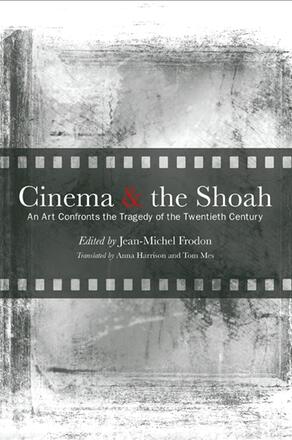
Cinema and the Shoah
An Art Confronts the Tragedy of the Twentieth Century
Examines the variety of cinematic responses to the Holocaust as well as the Shoah’s impact on cinematic expression itself.
Description
From The Great Dictator to Schindler's List, the extermination of the Jews of Europe has driven the cinema, more than any other form of artistic expression, to question its methods, techniques, and ethics. It is with reference to the Shoah that a decisive part of the thought behind modern cinema has been constructed, and, consciously or not, many of the greatest films of the past sixty years bear the mark of this event. To give an account of these phenomena, Cinema and the Shoah brings together filmmakers, historians, journalists, philosophers, and researchers to explore how the Shoah, as a historical event, implicated and mobilized the cinema by profoundly questioning its modes of recounting and storytelling, of putting visions onscreen. The book also includes a filmography (compiled with the assistance of the Fritz Bauer Institute of Frankfurt) that lists over three hundred feature-length films, short films, and documentaries about the Shoah, produced between 1945 and the present.
Jean-Michel Frodon is a former managing editor of Cahiers du cinéma. His previous books include La critique de cinéma and Le cinéma chinois.
Reviews
"Cinema and the Shoah … opens up new avenues with regard to the insistence on Auschwitz as blind spot, as absolute negativity, and its impact on visual language … the book will be a valuable resource for students, teachers, and researchers of Jewish and modern history, of visual culture and the Holocaust. " ¬ — H-Net Reviews (H-Judaic)
"Cinema and the Shoah takes on an unbelievably complex and difficult subject—not to mention an emotionally draining one—with intellectual force. " — AJL Reviews
"…Frodon has put together a remarkable collection of essays and still photographs. " — CHOICE
"With its comprehensive examination of the role that the cinema, broadly defined, has played in representing an event that only problematically permits representation, Cinema and the Shoah fills a significant gap in Holocaust studies. An engaging, disturbing, provocative book that is a must read for both film scholars and those interested in the central role that films and filmmakers have played in making known and shaping the meaning of the Holocaust. " — R. Barton Palmer, Clemson University
"This book underlines how much, and in what ways, the Holocaust can be seen at the roots of cinematographic modernity. " — Les Inrockuptibles, in praise of the French edition
"Many voices, signatures, and angles are put together to explore the way the Holocaust—and the denial of the image and the human it signifies—drew its deep imprint in cinema. " — Le Monde, in praise of the French edition